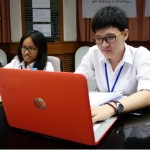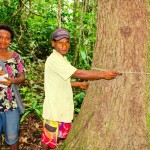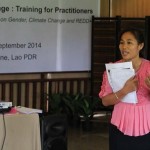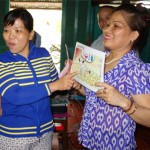
Classroom instruction doesn’t always prepare students for real world work challenges and conditions, but universities and vocational colleges in Asia’s Lower Mekong subregion are staying ahead of the curve. They are bringing industry and technology into the schools.

Despite a lack of electricity or running water, nine communities in Papua New Guinea’s Almami area of Madang province are taking charge of their environment and providing an example to other communities and their government on climate change adaptation and mitigation.

The eldest of three daughters, she grew up in a farming family near the Mekong River in Cambodia. Doem Sdao, a rural, agricultural community, was poor and isolated. Cheng never heard of gender equality until she was recruited to join the Cambodia Ministry of Women’s Affairs in 2007. Her education in law and development cooperation led her superiors to give her a leadership position on gender and climate change.

Arnon Boonyapravase fends off jokes from friends who wonder what on earth he printed out on his 3D printer. “Some say it is a pregnancy test. Others say it is a breathalyzer,” he said.

Farmers across coastal delta communities in the Lower Mekong Basin are experiencing firsthand the negative effects of climate change. Rainfall in the area has become more and more irregular, ruining crops and threatening livelihoods.







Comment
Make a general inquiry or suggest an improvement.